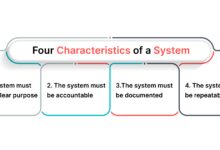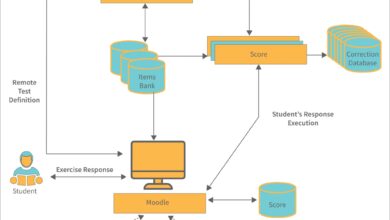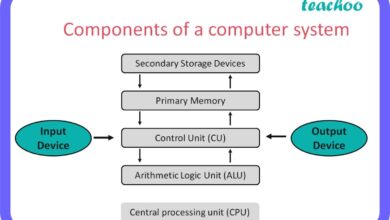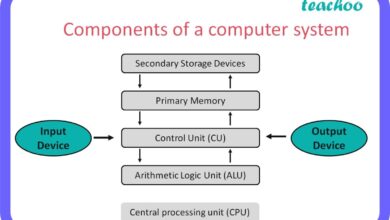CRM with AI Chatbot Integration: 7 Game-Changing Benefits You Can’t Ignore
In today’s fast-paced digital world, businesses are turning to smarter tools to stay ahead. A CRM with AI chatbot integration isn’t just a trend—it’s a revolution in customer engagement, efficiency, and growth.
What Is a CRM with AI Chatbot Integration?

At its core, a CRM (Customer Relationship Management) system helps businesses manage interactions with current and potential customers. When combined with AI chatbot integration, it transforms into a dynamic, intelligent platform capable of automating communication, predicting customer needs, and delivering personalized experiences at scale.
Understanding CRM Systems
CRM systems have evolved from simple contact databases to comprehensive platforms that track sales, marketing, customer service, and analytics. Modern CRMs like Salesforce, HubSpot, and Zoho centralize customer data, enabling teams to collaborate more effectively and make data-driven decisions.
- Centralizes customer information across departments
- Tracks customer interactions and purchase history
- Supports sales pipeline management and lead nurturing
These systems are essential for maintaining long-term customer relationships and improving retention rates. According to Salesforce’s State of the Connected Customer report, 88% of customers expect companies to accelerate digital initiatives, making CRM adoption non-negotiable.
The Role of AI Chatbots in Customer Service
AI chatbots are software powered by artificial intelligence and natural language processing (NLP) that simulate human conversation. They can answer questions, guide users through processes, and even resolve issues without human intervention.
- Available 24/7 to handle customer inquiries
- Reduce response times from hours to seconds
- Scale support during peak demand without additional staff
When integrated into a CRM, these chatbots gain access to real-time customer data, enabling them to provide context-aware responses. For example, a chatbot can pull up a user’s order history or service tickets instantly, making interactions more relevant and efficient.
“AI-powered chatbots are projected to handle over 70% of customer service interactions by 2025.” — Gartner
How CRM with AI Chatbot Integration Works
The integration between a CRM and an AI chatbot is not just about connecting two systems—it’s about creating a seamless flow of data and intelligence. This synergy allows businesses to automate customer journeys while maintaining a personal touch.
Data Synchronization Between CRM and Chatbot
For a CRM with AI chatbot integration to function effectively, real-time data synchronization is crucial. When a customer interacts with a chatbot, the conversation details—such as intent, sentiment, and requested actions—are logged directly into the CRM.
- Chatbot captures lead information and auto-creates CRM records
- Customer preferences and behavior are updated in real time
- Service tickets are generated automatically based on chatbot diagnosis
This eliminates manual data entry, reduces errors, and ensures that every team member has access to the latest customer insights. Platforms like Zendesk Answer Bot and Intercom’s Fin offer native CRM integrations that streamline this process.
Automated Workflows and Trigger-Based Actions
One of the most powerful features of a CRM with AI chatbot integration is the ability to trigger automated workflows based on chatbot interactions. For instance, if a customer asks about pricing, the chatbot can initiate a lead qualification workflow in the CRM, assign the lead to a sales rep, and send a follow-up email—all without human input.
- Lead scoring based on chatbot engagement level
- Automated appointment scheduling via calendar sync
- Escalation to live agents when complexity exceeds bot capabilities
These workflows not only improve efficiency but also ensure consistency in customer experience. According to a study by IBM, companies using AI-driven automation in customer service see a 30% reduction in operational costs.
7 Key Benefits of CRM with AI Chatbot Integration
Integrating AI chatbots into your CRM isn’t just about automation—it’s about transformation. Here are seven game-changing benefits that make this combination a must-have for modern businesses.
1. 24/7 Customer Support Without Extra Costs
Unlike human agents, AI chatbots don’t need breaks, vacations, or overtime pay. A CRM with AI chatbot integration enables round-the-clock customer service, ensuring that no inquiry goes unanswered—even at 3 a.m. on a Sunday.
- Handle common queries like order status, return policies, and FAQs instantly
- Reduce after-hours support costs by up to 60%
- Maintain consistent service quality across time zones
For global businesses, this is a massive advantage. Customers in different regions get immediate assistance, improving satisfaction and reducing churn. Companies like KLM Royal Dutch Airlines use AI chatbots to provide real-time flight updates and booking support in multiple languages, all integrated with their CRM.
2. Faster Response Times and Higher Efficiency
Speed matters. Research by HubSpot shows that the likelihood of qualifying a lead drops by 10x if the response time exceeds 5 minutes. A CRM with AI chatbot integration ensures instant replies, keeping prospects engaged.
- Chatbots respond in under 1 second, compared to average human response times of 2+ minutes
- Simultaneously handle thousands of conversations without lag
- Pre-qualify leads before routing to sales teams
This speed translates into higher conversion rates. For example, an e-commerce brand using a chatbot to answer product questions saw a 40% increase in cart completion rates because customers got instant clarity before purchasing.
3. Personalized Customer Experiences at Scale
Personalization is no longer a luxury—it’s an expectation. A CRM with AI chatbot integration leverages customer data to deliver tailored interactions that feel human, even when they’re automated.
- Recommend products based on past purchases and browsing behavior
- Use customer names and reference previous interactions
- Adjust tone and language based on customer sentiment analysis
For instance, a telecom company might use its CRM-integrated chatbot to offer personalized upgrade plans to customers nearing the end of their contract. By analyzing usage patterns and preferences stored in the CRM, the bot can suggest the most relevant options, increasing upsell success rates by 25%.
“72% of customers only engage with personalized messaging.” — SmarterHQ
4. Improved Lead Generation and Qualification
Generating leads is one thing—qualifying them is another. A CRM with AI chatbot integration acts as a smart gatekeeper, engaging website visitors, collecting contact information, and assessing their readiness to buy.
- Initiate conversations with exit-intent popups when users try to leave
- Ask qualifying questions (e.g., budget, timeline, decision-makers)
- Score leads based on engagement level and automatically assign them to sales reps
This not only increases lead volume but also improves lead quality. Sales teams spend less time chasing unqualified prospects and more time closing deals. A B2B SaaS company reported a 50% increase in qualified leads after deploying a CRM-integrated chatbot on their pricing page.
5. Enhanced Data Collection and Customer Insights
Every chatbot interaction is a data goldmine. When linked to a CRM, these conversations enrich customer profiles with behavioral, emotional, and intent-based insights that traditional forms or surveys often miss.
- Track customer sentiment using NLP to detect frustration or satisfaction
- Identify common pain points from frequently asked questions
- Map customer journey stages based on interaction patterns
This data empowers marketing teams to refine campaigns, product teams to improve offerings, and executives to make strategic decisions. For example, if a chatbot notices a spike in complaints about a specific feature, the product team can prioritize a fix before it escalates into a larger issue.
6. Seamless Handoff to Human Agents
While AI chatbots handle routine tasks, complex issues still require human empathy and judgment. A well-integrated CRM with AI chatbot integration ensures smooth handoffs, so customers don’t have to repeat themselves.
- Chatbot summarizes the conversation and attaches it to the support ticket
- Transfers context, including customer history and emotional tone
- Routes the case to the most appropriate agent based on skill and availability
This continuity enhances customer satisfaction and reduces resolution time. According to Forrester, companies with seamless bot-to-human handoff processes report 20% higher customer satisfaction scores.
7. Scalability Without Sacrificing Quality
As your business grows, so do customer inquiries. Hiring and training new support staff is costly and time-consuming. A CRM with AI chatbot integration allows you to scale your customer service instantly—without compromising quality.
- Handle seasonal spikes (e.g., holiday sales, product launches) effortlessly
- Expand into new markets with multilingual chatbot support
- Maintain consistent service standards across all touchpoints
This scalability is especially valuable for startups and mid-sized companies aiming to compete with larger enterprises. With AI handling the bulk of routine queries, human agents can focus on high-value interactions that drive loyalty and revenue.
Top Platforms for CRM with AI Chatbot Integration
Choosing the right platform is critical to maximizing the benefits of a CRM with AI chatbot integration. Here are some of the most powerful and widely adopted solutions in the market.
Salesforce + Einstein Bots
Salesforce, the world’s leading CRM, offers Einstein Bots—a native AI chatbot builder that integrates seamlessly with Sales Cloud, Service Cloud, and Marketing Cloud.
- Build bots using a drag-and-drop interface without coding
- Leverage Einstein AI for intent recognition and predictive responses
- Automate case creation, lead capture, and appointment booking
Einstein Bots learn from historical service cases, improving accuracy over time. They can also escalate to live agents within the same interface, ensuring continuity. Learn more at Salesforce Einstein Bots.
HubSpot + Conversations Bot
HubSpot’s Conversations tool includes a powerful chatbot builder that syncs with its CRM and marketing automation suite.
- Create bots to qualify leads, book meetings, and answer FAQs
- Personalize messages using CRM data like company size and lifecycle stage
- Track bot performance with built-in analytics
One of HubSpot’s standout features is its ability to trigger multi-step workflows based on chatbot interactions. For example, if a visitor downloads a whitepaper, the bot can follow up with a personalized demo offer. Explore it at HubSpot Conversations.
Zoho CRM + Zobot
Zoho offers an affordable yet robust solution with Zobot, its AI-powered chatbot for Zoho CRM.
- Train bots using FAQs and historical chat data
- Integrate with Zia, Zoho’s AI assistant, for advanced analytics
- Support multiple channels including WhatsApp, Facebook, and websites
Zobot excels in multilingual support and is ideal for businesses targeting diverse markets. It also supports voice bots for phone-based interactions. Visit Zoho Bots for more details.
Real-World Use Cases of CRM with AI Chatbot Integration
Theoretical benefits are compelling, but real-world applications demonstrate the true impact of a CRM with AI chatbot integration. Let’s explore how different industries are leveraging this technology.
E-Commerce: Personalized Shopping Assistants
Online retailers use AI chatbots to guide customers through product selection, answer sizing questions, and recommend items based on browsing history.
- Stitch Fix uses AI to personalize fashion recommendations, integrated with their CRM for seamless order management
- Shopify merchants deploy bots to recover abandoned carts with personalized discounts
- Bots handle post-purchase inquiries like shipping updates and return requests
One fashion brand reported a 35% increase in average order value after implementing a CRM-integrated chatbot that suggested complementary products during checkout.
Banking and Finance: Secure Customer Support
Banks use CRM with AI chatbot integration to provide secure, instant support for account inquiries, transaction disputes, and loan applications.
- Bank of America’s Erica chatbot has over 10 million users and handles balance checks, bill payments, and credit score monitoring
- Bots authenticate users via biometrics and CRM-linked identity verification
- Escalate sensitive issues like fraud alerts to human specialists with full context
By reducing call center volume, banks save millions annually while improving customer satisfaction. Erica alone has completed over 100 million client requests since launch.
Healthcare: Patient Engagement and Appointment Management
Hospitals and clinics use AI chatbots to streamline patient communication, reduce no-shows, and improve care coordination.
- Bots send automated appointment reminders and collect pre-visit questionnaires
- Answer common health queries (e.g., symptoms, medication info) with CRM-backed knowledge bases
- Integrate with electronic health records (EHR) for personalized follow-ups
A U.S. healthcare provider reduced appointment no-shows by 25% after deploying a CRM-integrated chatbot that sent SMS reminders and allowed rescheduling via chat.
Challenges and Limitations of CRM with AI Chatbot Integration
Despite its many advantages, implementing a CRM with AI chatbot integration comes with challenges that businesses must address to ensure success.
Data Privacy and Security Concerns
Chatbots handle sensitive customer information, making data security a top priority. Poorly configured integrations can expose personal data to breaches.
- Ensure end-to-end encryption for chatbot-CRM data transfers
- Comply with regulations like GDPR, CCPA, and HIPAA
- Implement role-based access controls within the CRM
Businesses must also be transparent about data usage. Inform users when they’re interacting with a bot and how their data will be stored and used.
Over-Reliance on Automation
While automation improves efficiency, over-reliance can alienate customers who expect human empathy in complex situations.
- Avoid using bots for emotionally sensitive issues (e.g., bereavement, complaints)
- Design clear escalation paths to live agents
- Monitor customer feedback to identify frustration points
A balanced approach—where bots handle routine tasks and humans manage complex interactions—delivers the best results.
Integration Complexity and Maintenance
Integrating AI chatbots with legacy CRM systems can be technically challenging, especially if APIs are limited or outdated.
- Require IT expertise for setup and ongoing maintenance
- Need regular training of AI models to maintain accuracy
- Must update chatbot scripts as products, policies, or CRM fields change
Cloud-based CRM platforms with native chatbot builders (like Salesforce and HubSpot) reduce this burden, but custom solutions may require dedicated development resources.
Future Trends in CRM with AI Chatbot Integration
The evolution of AI and CRM technology is accelerating. Here are key trends shaping the future of CRM with AI chatbot integration.
Advanced Natural Language Understanding (NLU)
Future chatbots will understand context, sarcasm, and emotional nuance with greater accuracy, thanks to advancements in NLU and deep learning.
- Bots will detect customer frustration from tone and word choice
- Adapt responses based on emotional state (e.g., more empathetic language)
- Support complex, multi-turn conversations without losing context
Google’s Dialogflow and Microsoft’s Bot Framework are already pushing these boundaries, enabling bots to handle intricate customer journeys.
Predictive Customer Service
AI will shift from reactive to proactive support. A CRM with AI chatbot integration will anticipate issues before they arise.
- Notify customers of potential delivery delays before they ask
- Offer troubleshooting tips based on device usage patterns
- Recommend service renewals or upgrades based on lifecycle analysis
This predictive capability will transform customer service from a cost center to a value-adding function.
Voice-Enabled CRM Chatbots
With the rise of smart speakers and voice assistants, voice-enabled chatbots integrated with CRM systems are becoming mainstream.
- Allow customers to check order status or book appointments using voice commands
- Integrate with Alexa, Google Assistant, and phone IVR systems
- Transcribe and log voice conversations directly into CRM records
Companies like Amazon Connect and Twilio are leading this shift, enabling businesses to deliver hands-free, conversational experiences.
What is a CRM with AI chatbot integration?
A CRM with AI chatbot integration combines customer relationship management software with artificial intelligence-powered chatbots to automate communication, enhance customer service, and improve data-driven decision-making. The chatbot accesses CRM data to deliver personalized, context-aware responses in real time.
How does AI chatbot integration improve customer service?
It enables 24/7 support, reduces response times, personalizes interactions, and automates routine inquiries. When integrated with a CRM, chatbots provide faster, more accurate responses by leveraging customer history and preferences.
Can AI chatbots replace human customer service agents?
No, they complement human agents. Chatbots handle repetitive tasks and initial inquiries, while humans manage complex, emotional, or high-stakes interactions. The best systems allow seamless handoffs between bots and live agents.
Which CRM platforms offer the best AI chatbot integration?
Salesforce (Einstein Bots), HubSpot (Conversations Bot), and Zoho (Zobot) are among the top platforms offering robust, native AI chatbot integration with their CRM systems.
Is CRM with AI chatbot integration secure?
Yes, when implemented correctly. Ensure data encryption, compliance with privacy regulations, and secure API connections between the chatbot and CRM. Always choose reputable vendors with strong security certifications.
Integrating AI chatbots with your CRM is no longer optional—it’s a strategic imperative. A CRM with AI chatbot integration enhances customer experience, boosts operational efficiency, and drives growth. From 24/7 support to predictive service, the benefits are clear. While challenges like data security and integration complexity exist, the right platform and strategy can overcome them. As AI continues to evolve, businesses that embrace this technology will lead the way in customer engagement and innovation.
Further Reading:









